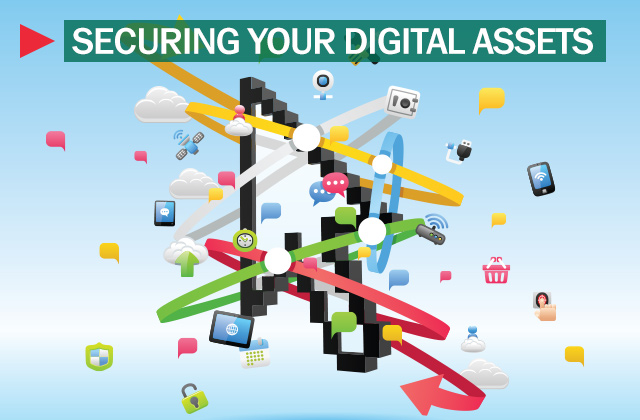How To Safely Secure Your Digital Assets

What is cyber security?
Cyber security is the practice of protecting electronic information and systems from harm or theft. Cyber security includes physical, network, and information security. Physical security defends electronic equipment from unauthorized access, use, or disclosure. Network security protects the communications infrastructure from intrusion or malicious attack. Information security protects the confidentiality, integrity, and availability of data.
There are several cyber-security measures you can take to protect your digital assets:
• Use a firewall to block unwanted access to your computer networks
• Install antivirus software on your personal computers to protect against malware and other online threats
• Protect your passwords and other personal information by using strong encryption methods
• Regularly back up your data in case of a loss or theft
The importance of digital security
Digital security is essential for safeguarding your personal assets and data. Thieves are always looking for ways to steal your information, so it’s important to take steps to protect yourself. Here are a few tips for safe digital security:
1. Use a password manager. A password manager makes it easy to create strong passwords and store them digitally. This way, you won’t have to remember multiple passwords or worry about losing them in the event that they’re stolen.
2. Keep your device secure. Always use a PIN or fingerprint lock on your devices when not in use. Also make sure to keep your device up-to-date with the latest security patches and antivirus software.
3. Back up your data regularly. It’s important to have a backup of your data in case something happens and you lose access to your files. Consider using an online backup service or creating a USB drive with copies of all of your important files.
4. Don’t share personal information online. Never give out your Social Security number, bank account numbers, or other personal information online.
5. Use two-factor authentication (2FA). 2FA adds an extra layer of security by requiring you to enter another piece
The classic mistakes people make on the internet
1. not using a strong and unique password
2. not encrypting sensitive data
3. not backing up digital assets
4. leaving personal information open on the internet
How to protect your digital assets
Digital assets are valuable, and it’s important to protect them. There are a few ways to do this. Here are a few tips:
1. Use a password manager. This will help you create strong passwords and keep track of them so you don’t have to remember them all.
2. encrypt your files. This will make them difficult to access if they’re stolen or hacked, and it’ll protect your privacy as well.
3. store your digital assets in a safe location. This could be a secure online account or a physical storage device like a hard drive or USB drive that you keep locked up.
Conclusion
As technology changes and our lives become increasingly digitized, it is important to take steps to protect our digital assets. This includes ensuring that we are protecting our passwords, email addresses, and other personal information. By following these simple tips, you can help safeguard your digital assets and keep yourself safe from identity theft.
Apart from this if you ae interested to know about How Diverse Are the Benefits of Custom Recyclable Boxes? then visit our business category.




